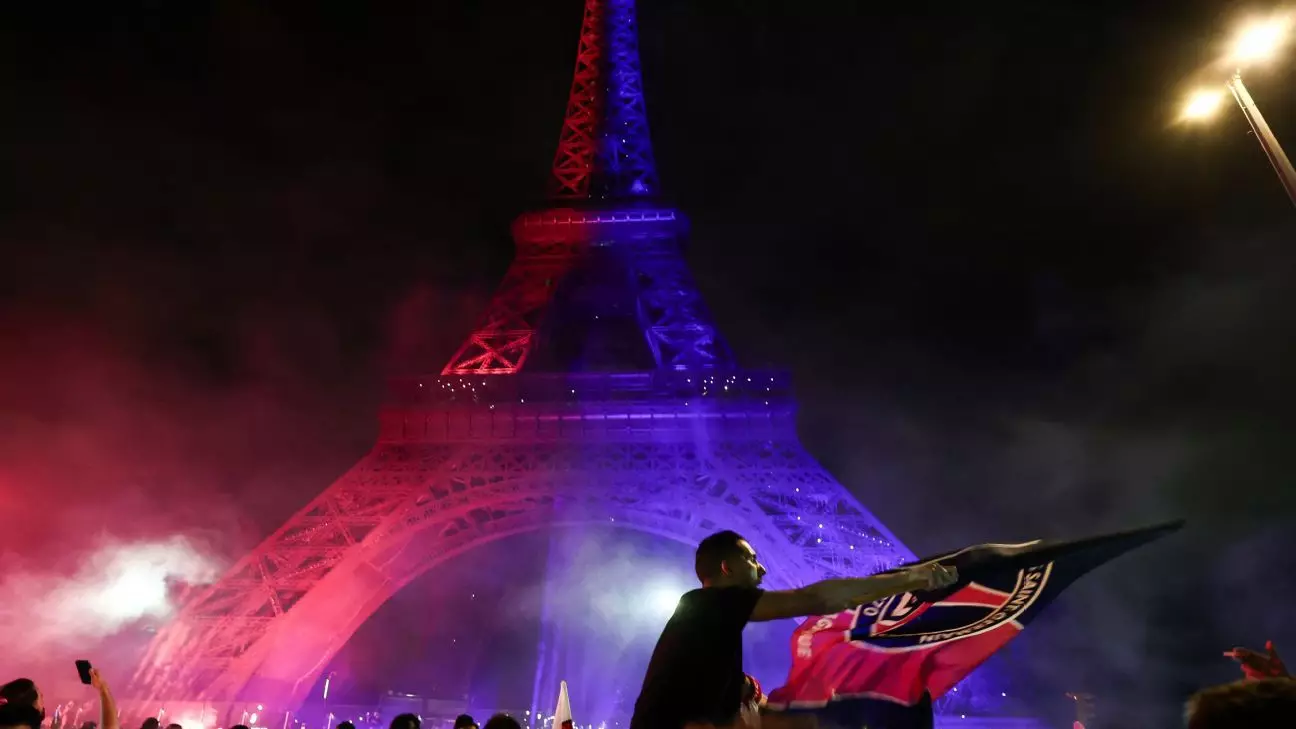The jubilant atmosphere surrounding Paris Saint-Germain’s historic Champions League victory has been dramatically tainted by the tragic events that unfolded in the wake of their 5-0 rout of Inter Milan. This moment marked a long-awaited achievement for the club, finally securing Europe’s most prestigious football title. However, the excitement that permeated the streets of Paris and beyond was marred by violence and loss. The deaths of two fans and the grave injury of a police officer serve as stark reminders of how celebrations can quickly spiral out of control, prompting a multifaceted discussion about public safety, societal responsibility, and the implications of fanaticism in sports.
The anticipation leading up to this monumental match was palpable. Fans flooded the streets, donning the iconic colors of PSG, turning the Eiffel Tower into a vibrant beacon of team spirit. Yet, while many celebrated peacefully, a darker narrative emerged. The stabbing of a 17-year-old boy during a public gathering in Dax and the tragic death of a man in his 20s after a collision during the celebrations in Paris revealed a disturbing undercurrent of violence. These incidents draw attention to the fact that sports fandom can sometimes produce an unsettling mix of euphoria and recklessness, raising questions about accountability during public events.
The Cost of Celebration
As is often the case when revelry turns to chaos, the police found themselves in a precarious position, tasked with managing the overwhelming surge of fans and ensuring public safety. Reports indicate that around 294 arrests were made amid widespread festivities, with numerous injuries resulting from incidents involving fireworks and altercations among some attendees. A police officer’s critical eye injury, which forced him into an induced coma, highlights the real dangers faced by law enforcement during such events. The juxtaposition of a historic sports victory and the violent undertones of celebration raises significant concerns. When does fervor for a team cross the line into discord?
The Paris police chief, Laurent Nunez, suggested that a segment of the attendees, rather than participating in the joyous occasion, appeared intent on creating disruption. This observation raises an essential dialogue about the motivations and behaviors of certain individuals within large gatherings. Is the idyllic vision of a fanbase united by a shared passion for sport becoming increasingly complicated by the presence of those seeking chaos? While the elation surrounding PSG’s victory was undoubtedly exhilarating, it’s crucial to address the mindset of those who see an opportunity to engage in violence amidst the festivities.
Safety Measures in the Wake of Unrest
In response to the violence that unfolded, extensive safety measures were implemented. Paris was subjected to heavy police presence, with reports of tear gas and water cannons being deployed to control unruly crowds. Such drastic measures can often feel jarring, yet they underscore the tension that can exist between the desire to celebrate a community’s achievements and the need to protect public order. The security measures extended beyond just crowd control; traffic closures disrupted normal activities and overflowed into events like the ongoing French Open, illustrating the wide-reaching impact of these celebrations, both good and bad.
While joy is a compelling companion to victory in sports, it seems increasingly clear that the structural and human cost of celebrations must be addressed head-on. The balance between festival spirit and chaos is precarious. Large gatherings can amplify both exuberance and volatility, challenging local authorities to adapt to changing social dynamics.
As the team prepared for a grand victory parade along the historic Champs-Élysées, it was impossible to ignore the violent episodes of the previous night. The scenes of joy at places like the Place de la Bastille—where fans climbed monuments, cheered, and danced—remind us of the unifying power of sports. However, moments of elation coexist with the stark reality that such celebrations can intensify violence and lead to unrest. The duality of PSG’s triumph encapsulates not only the exultation of a long-sought victory but also the urgent need for community introspection regarding sportsmanship, safety, and social responsibility.

Leave a Reply